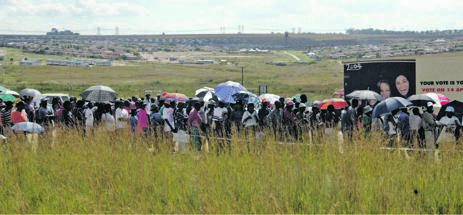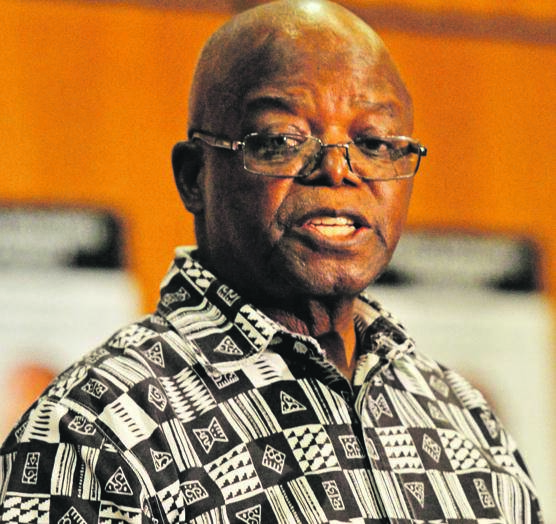
We all have a moral obligation to vote. Why? Because a vote makes a government better or worse, helps create economic opportunities, alleviates poverty and can even inflict and perpetuate injustice. A vote can make people’s lives better or worse.
When we make that cross on the ballot paper on May 8, we will be changing the quality, scope and kind of government we will be electing.
Here are questions of voting ethics posed by academics and researchers and our own organisation, the Moral Regeneration Movement over the years: When citizens do vote, how should they vote? Should citizens choose to vote or abstain? If a person is indifferent to the outcome of an election, should he or she abstain?
Should voters use their religious beliefs to decide how to vote? Must voters vote sincerely for the party they believe is best? What counts as voting for the best party? Should voters vote solely for their own interest, or should they vote for the common good, whatever that is?
A few years ago I came across these 10 Commandments for Responsible Voting, prepared by the Parish Pastoral Council for Responsible Voting in the Philippines.
. Thou shalt vote according to the dictates of your conscience;
. Thou shalt respect the decision of others in choosing their candidates;
. Thou shalt seek to know the moral integrity, capabilities and other personal qualities of the candidates for whom you will vote;
. Thou shalt strive to understand the issues, platform and programmes of candidates and parties seeking your vote;
. Thou shalt not sell your vote;
. Thou shalt not vote for candidates using guns, goons and gold;
. Thou shalt not vote for candidates with records of graft and corruption, or those involved in illegal drugs;
. Thou shalt not vote for candidates just because of debt of gratitude, popularity or goodwill;
. Thou shalt not vote for candidates living an immoral life; and
. Thou shalt put the welfare of the country above all else in choosing the candidate for whom you will vote.
It is clear that morally voting is the basic way to influence the quality of government and democracy. Therefore each citizen is morally obliged to visit the voting station on election day. At the very least, it is better to vote than to abstain.
These fundamental commandments strike at the very heart of any democratic society. Every one of us must have faith that theirs is truly a representative government of the people, by the people and for the people.
Every voice will be heard because every vote will be tallied and this is the critical covenant between citizens and the civil servants they hire and elect to protect and preserve their rights.
What you write on the ballot paper dictates where your votes go. Therefore, before you tick a box in protest, ask yourself if you really want a state where the elected government cannot govern. Only vote for a party you believe will be effective and which has clearly enunciated polices on all major issues.
Failing to vote is pointless behaviour. This does not constitute a valid protest. Don’t waste votes on protests unless you are willing to accept the results. No one wants to hear your whingeing afterwards.
Understand the policies and know exactly what you are voting for. Use your vote wisely; the vote is a precious gift not an imposition. We have a duty not merely to vote but to vote well and keep an eye out for the public interest and promote the common good.
I am not arguing that voters should vote for whatever they believe promotes the common good. Instead, I am arguing that voters ought to vote for what they justifiably believe promotes the common good.
Given this condition, one cannot help concluding that a voter bears a responsibility directly proportional to the effect of their vote.
Granted, responsibility is a profound word but it is not a far-fetched concept. It is embedded deeply in the framework of the South African society. It lies within the very essence of democracy.
For all time, freedom and responsibility are correlatives. The one always involves and implies the other. Freedom brings with it the responsibility to choose and, by making a choice, one assumes further responsibilities.
Every voter should say they are responsible voters because they carefully pay attention, not to the party’s campaign jingles, manifesto or lively posters only, but to their platforms, which should be clearly defined and strongly founded.
Every voter should say they are responsible voters because they do not let emotions cloud theie judgement especially in making decisions that unavoidably affect others.
Indeed, voting takes effort. It takes time, although many agree that a half hour to three hours every five years is not a high price for a fundamental freedom for which millions died.
Although we may feel powerless when the dominant political views do not agree with our own, we all have a stake in service-delivery issues on a national and local level.
The more people who demonstrate their faith in our democracy by voting, the better for this country. The more people who participate in the political process, the more diverse will be the representation and the greater the chance for compromise and less polarisation.
Indeed, every vote offers a political perspective that will be acknowledged, even if it does not directly determine who takes office on May 25.
Mkhatshwa is chairperson of the Moral Regeneration Movement.
TALK TO US
We all have an obligation to vote and to
vote well. Do you agree?
SMS us on 35697 using the keyword VOTE and tell us what you think. Please include your name and province. SMSes cost R1.50. By participating, you agree to receive occasional marketing material




 Publications
Publications
 Partners
Partners









